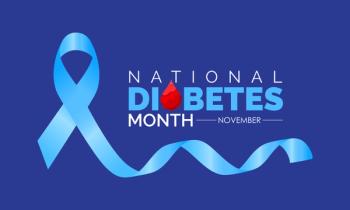
Patients with non–small cell lung cancer (NSCLC) had an objective response rate of about 77%.

Patients with non–small cell lung cancer (NSCLC) had an objective response rate of about 77%.

SHR-A1811 is a novel HER2-targeting ADC comprised of trastuzumab linked to a topoisomerase I inhibitor payload via a cleavable linker.

The CLEAR framework helps guide pharmacists during the process of assessing and delabeling β-lactam allergies to improve patient outcomes.

New research shows that an increased consumption of ultraprocessed foods significantly raises prediabetes risk in young adults, highlighting urgent dietary intervention needs.

New research reveals similar severe outcomes for adults hospitalized with hMPV and RSV, emphasizing the need for awareness of both infections.

Ziftomenib gains FDA approval as a targeted treatment for relapsed acute myeloid leukemia with NPM1 mutations, offering new hope for patients.

Nazia Somani Babul, PharmD, BCACP, often serves as a primary or coinvestigator and collaborates with pharmacists, students, and residents.

Giredestrant and everolimus show significant survival benefits for ER-positive, HER2-negative advanced breast cancer post-CDK4/6 therapy.

Hypertensive disorders of pregnancy confer increased cardiovascular risk, with heightened risk corresponding to more severe hypertension.

Heart failure prevention can be integrated into health systems to optimize care.

Talquetamab shows promising efficacy in heavily pretreated patients with relapsed/refractory multiple myeloma, reinforcing its role in advanced treatment strategies.

Semaglutide shows significant weight loss and reduces obesity-related health risks, offering a promising solution for effective weight management.

The new year can present challenges to health-system pharmacy.

Pharmacists’ expertise is vital to AI’s safe integration into medication management. A growing array of resources and training supports pharmacists’ engagement with this new technology.

Inclisiran significantly enhances LDL-C goal attainment in patients post acute coronary syndrome, improving lipid management outcomes.

New data from AHA 2025 demonstrate the benefits of pharmacist-led hypertension management in reducing hemoglobin A1c (HbA1c) and blood pressure in minority patients with type 2 diabetes.

Consistent use of continuous glucose monitoring (CGM) significantly improves glycemic control in adults with type 2 diabetes (T2D).

SHR-A1811 shows significant antitumor activity in early-stage HER2+ breast cancer, both alone and with pyrotinib, promising improved treatment outcomes.

Oncology pharmacy evolves rapidly, emphasizing the need for pharmacists to stay informed and reflect on personal growth for better patient care.

Maternal type 1 diabetes may influence children's DNA, potentially reducing their risk of developing islet autoimmunity.

New findings suggest omitting radiation therapy in postmastectomy breast cancer treatment enhances survival, emphasizing the role of systemic therapies.

The FDA approves daratumumab and hyaluronidase for high-risk smoldering multiple myeloma, significantly improving patient outcomes and progression-free survival.

Leukogene's M2T-CD33 gains FDA orphan drug status, promising a novel immunotherapy approach for acute myeloid leukemia treatment.

The move continues the push towards most favored nation (MFN) status, lowering the prices of glucagon-like peptide-1 (GLP-1s) drugs for Medicare recipients.

Gedatolisib shows promise in enhancing progression-free survival for HR+/HER2– breast cancer patients resistant to standard therapies, as revealed in ESMO 2025.

Discover the importance of early screening for type 1 diabetes and how it can prevent life-threatening complications.

Oral semaglutide shows promise in enhancing glucose control and reducing cardiovascular risks.

Shara Bialo, MD, emphasizes the critical role of autoantibody screening in early T1D detection, enhancing patient outcomes during American Diabetes Month.

CAR-T and BsAb therapies revolutionize multiple myeloma treatment but pose infection risks, necessitating vigilant monitoring and tailored prevention strategies.